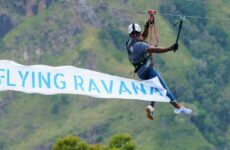The Forgotten Guardians: Journeying with the Veddas of Sri Lanka
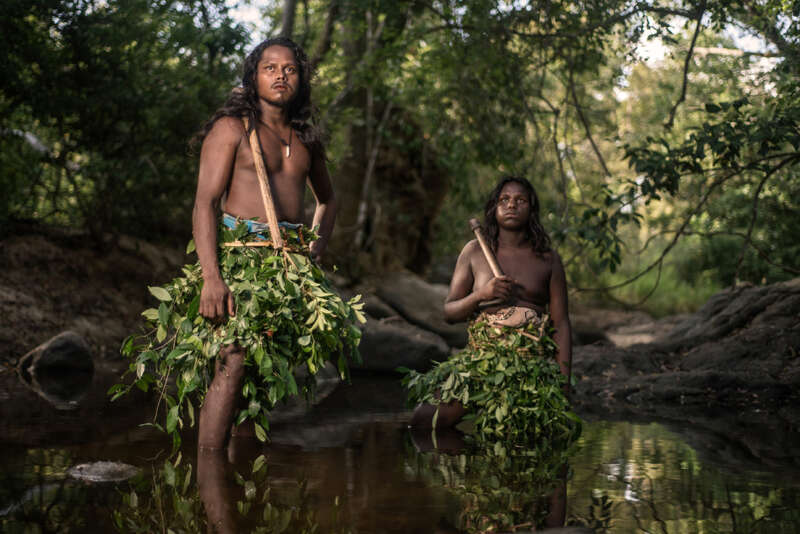
The Veddas are an indigenous people in Sri Lanka, primarily inhabiting the eastern part of the country, particularly the region of Bintenna and the Uva Province. They are considered one of the earliest inhabitants of the island and have a rich cultural heritage that spans thousands of years. The Veddas have a distinct language, customs, and a unique way of life that sets them apart from other communities in Sri Lanka.
Historically, the Veddas lived as hunter-gatherers, relying on the forest for their sustenance. They practiced a traditional subsistence lifestyle, hunting game, gathering honey, fruits, and tubers, and utilizing their knowledge of the forest for survival. However, over time, the encroachment of modern development and deforestation has severely impacted their traditional way of life, forcing many Veddas to adapt to new ways of living.
Veddas are believed to be the descendants of the island’s earliest inhabitants, possibly dating back to the prehistoric period. They have a unique genetic and anthropological profile, characterized by their dark complexion, curly hair, and distinct physical features. They have also maintained their own language, known as Veddah, which is classified as a distinct language within the larger Dravidian language family.
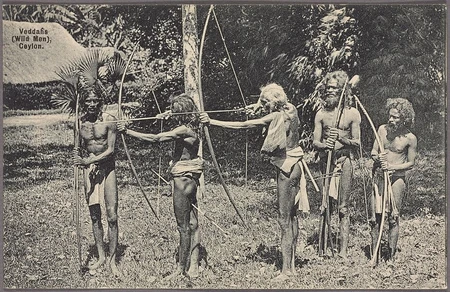
Vedda society traditionally had a simple social structure, consisting of small bands or groups led by a chief or headman. They practiced a form of animism, believing in the spirits and supernatural forces that governed the natural world. Their spiritual beliefs and practices were deeply connected to the forest, and they held a profound respect for nature.
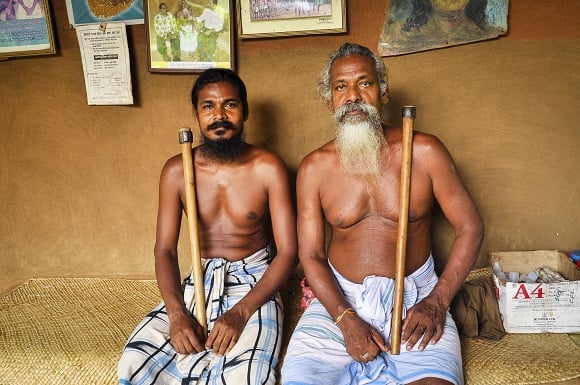
The Veddas of Sri Lanka historically practiced hunting as a means of subsistence, and they developed specific techniques and rituals associated with their hunting practices. These techniques and rituals were deeply rooted in their cultural beliefs and their close connection with the forest. Here are some insights into the hunting techniques and rituals of the Vedda people:
Hunting Techniques:
Bow and Arrow:
The Veddas were skilled archers and used bows and arrows as their primary hunting weapons. They crafted bows from flexible tree branches and arrows from bamboo or reeds. The arrows were tipped with barbs or poison to increase their effectiveness.
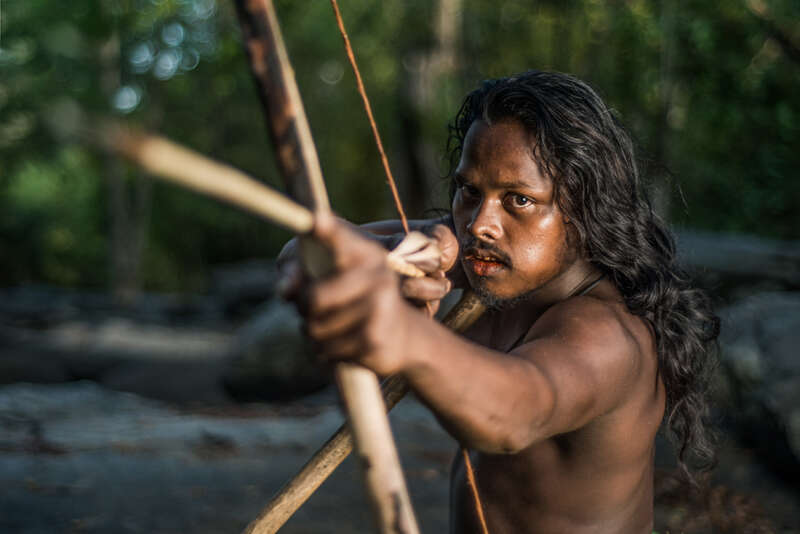
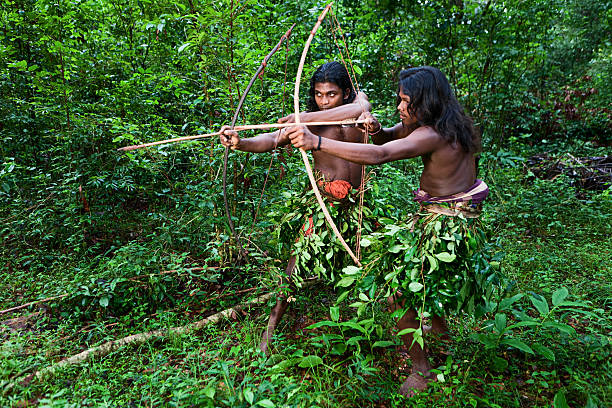
Traps and Snares:
Veddas employed various types of traps and snares to capture animals. These included pitfall traps, where a deep hole was dug and covered with leaves or branches, as well as snare traps made from vines or ropes that were strategically placed along animal paths.

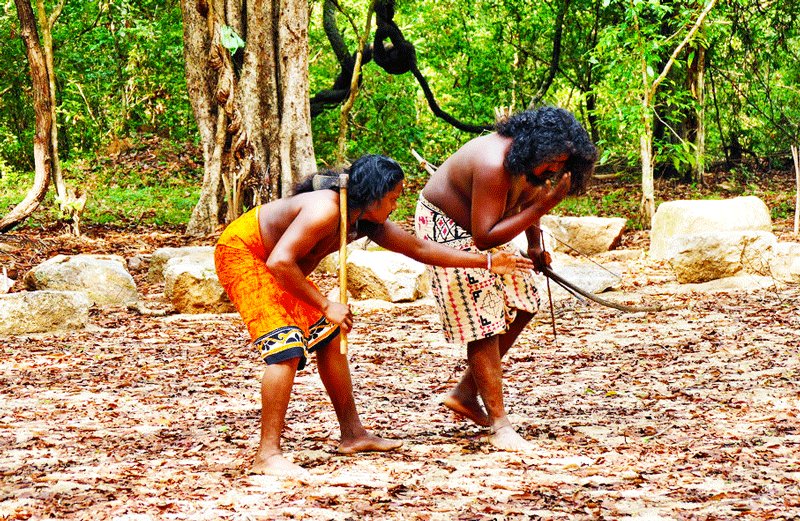
Tracking and Ambush:
Veddas had a profound knowledge of animal behaviour and the ability to track them in the forest. They would carefully observe animal tracks, signs, and behaviour to anticipate their movements. Veddas would often set up ambushes near water sources or known animal feeding grounds, patiently waiting for their prey.
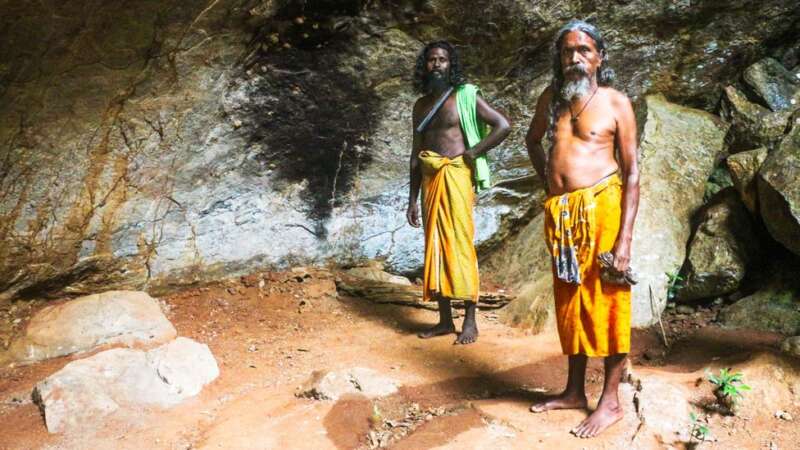
Fire Hunting:
Fire hunting was another technique employed by the Veddas. They would start controlled fires in specific areas of the forest, creating a ring of fire. This would drive animals towards waiting hunters or into traps, making it easier to capture them.
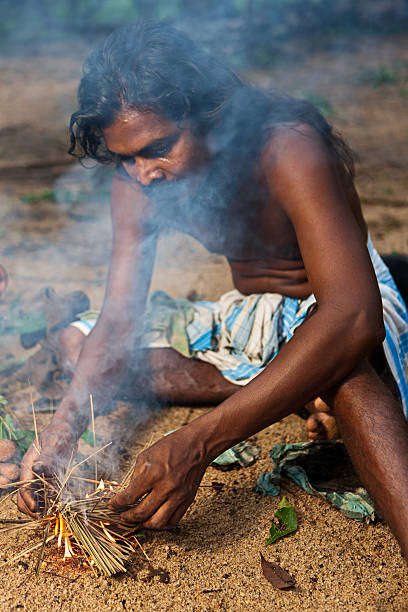
Rituals Associated with Hunting:
Pali:
Pali is a hunting ritual performed by the Veddas to seek the blessings and
protection of the forest spirits before embarking on a hunt. It involved
offerings, chants, and dances to appease the spirits and gain their favour.
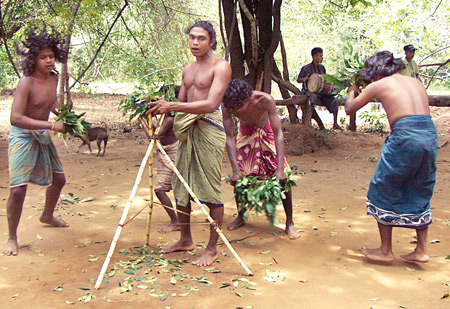
Thovil:
Thovil is a traditional healing and exorcism ritual practiced by the Veddas. In the context of hunting, it was believed that certain animals possessed supernatural powers or were inhabited by malevolent spirits. The Veddas would perform Thovil ceremonies to cleanse themselves and seek protection from any potential harm while hunting these animals.

Thanksgivings: After a successful hunt, the Veddas would express gratitude to the forest spirits and the animal that provided them with sustenance. They would perform thanksgiving rituals, which involved offerings and prayers to honour the spirits and express their appreciation.
These hunting techniques and rituals were not only practical for survival but also served as a means to establish a spiritual connection with nature and maintain a respectful relationship with the animals they hunted. It’s important to note that with changes in societal dynamics and the conservation of wildlife, the traditional hunting practices of the Veddas have significantly declined in recent times.
With the influences of modernization and external cultures, the Vedda community has undergone significant changes in recent decades. Many Veddas have integrated into mainstream society, adopting the language, customs, and religious practices of the majority Sinhalese and Tamil communities. As a result, the number of Veddas who continue to live a traditional lifestyle has dwindled, and their distinct cultural practices and knowledge of the forest are in danger of being lost.
Efforts have been made by the Sri Lankan government and various organizations to preserve and promote Vedda culture. Initiatives have been undertaken to document their language, traditions, and ecological knowledge. Additionally, there have been attempts to provide education, healthcare, and economic opportunities for the Vedda community while respecting their unique identity.
The Veddas of Sri Lanka are an indigenous group with a long history and a distinct cultural heritage. Their traditional lifestyle as hunter-gatherers in the forests has been impacted by modernization, but efforts are being made to preserve their culture and way of life. The Veddas continue to be an important part of Sri Lanka’s cultural diversity and a reminder of the island’s ancient roots.
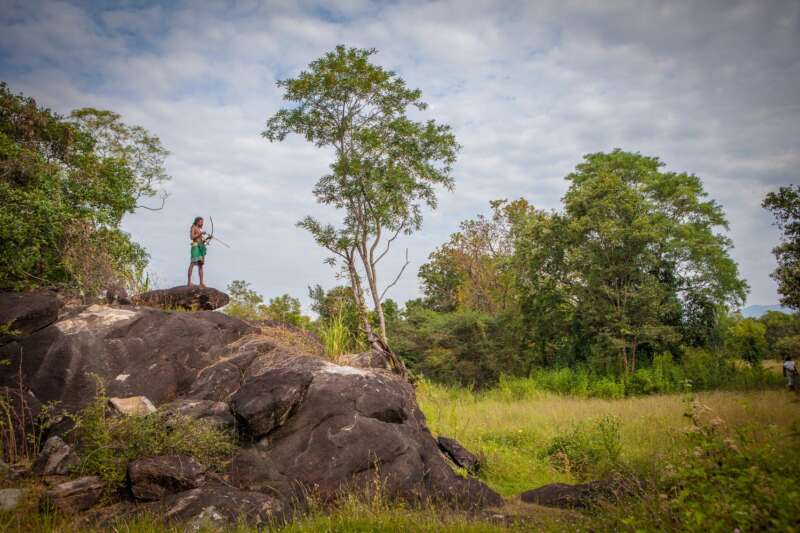
Traumland Tours
Flying high with the South Asia’s Longest & the Fastest Zip Line- Ravana Mega Zip Line, Ella Sri Lanka
June 13, 2023 NextWitness the Spectacle: Majestic Minneriya National Park’s Wild Elephant Gathering
June 13, 2023Related Posts

Sri Lanka makes it to the top 10 most instagrammable places in the world in 2023
June 27, 2023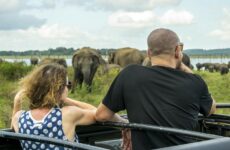
Witness the Spectacle: Majestic Minneriya National Park’s Wild Elephant Gathering
June 24, 2023